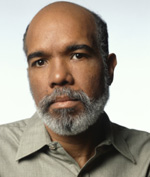Risk Factors
Research has found risk factors that increase your chances of getting prostate cancer. These risk factors include—
- Age: The older a man is, the greater his risk for getting prostate cancer.1
- Family history: Certain genes (the functional and physical units of heredity passed from parent to offspring) that you inherited from your parents may affect your prostate cancer risk. Currently, no single gene is sure to raise or lower your risk of getting prostate cancer. However, a man with a father, brother, or son who has had prostate cancer is two to three times more likely to develop the disease himself.1
- Race: Prostate cancer is more common in some racial and ethnic groups than in others, but medical experts do not know why.
Researchers are trying to determine the causes of prostate cancer and whether it can be prevented. They do not yet agree on the factors that can influence a man's risk of developing the disease, either positively or negatively.

According to the National Cancer Institute, avoiding cancer risk factors such as smoking, being overweight, and lack of exercise may help prevent certain cancers. Increasing protective factors such as quitting smoking, eating a healthy diet, and exercising also may help prevent some cancers. Talk to your doctor or other health care professional about how you might lower your risk of cancer.2
The Selenium and Vitamin E Cancer Prevention Trial (SELECT) studied whether taking vitamin E and selenium (a mineral) prevent prostate cancer. The selenium and vitamin E were taken separately or together by healthy men 55 years of age and older (50 years of age and older for African-American men). The study showed that selenium and vitamin E did not decrease the risk of prostate cancer.
Regular use of multivitamins has not been proven to increase or decrease the risk of early or localized prostate cancer. Talk to your doctor about multivitamin use.
References
1Bostwick DG, Burke HB, Djakiew D, Euling S, Ho SM, Landolph J, Morrison H, Sonawane B, Shifflett T, Waters DJ, Timms B. Human prostate cancer risk factors. Cancer 2004;101(10 Suppl):2371–2490.
2National Cancer Institute. Prostate Cancer Prevention (PDQ®). Bethesda, MD: U.S. Department of Health and Human Services, National Institutes of Health.
Contact Us:
- Centers for Disease Control and Prevention
Division of Cancer Prevention and Control
4770 Buford Hwy NE
MS K-64
Atlanta, GA 30341 - 800-CDC-INFO
(800-232-4636)
TTY: (888) 232-6348
8am–8pm ET
Monday–Friday
Closed on Holidays - cdcinfo@cdc.gov



